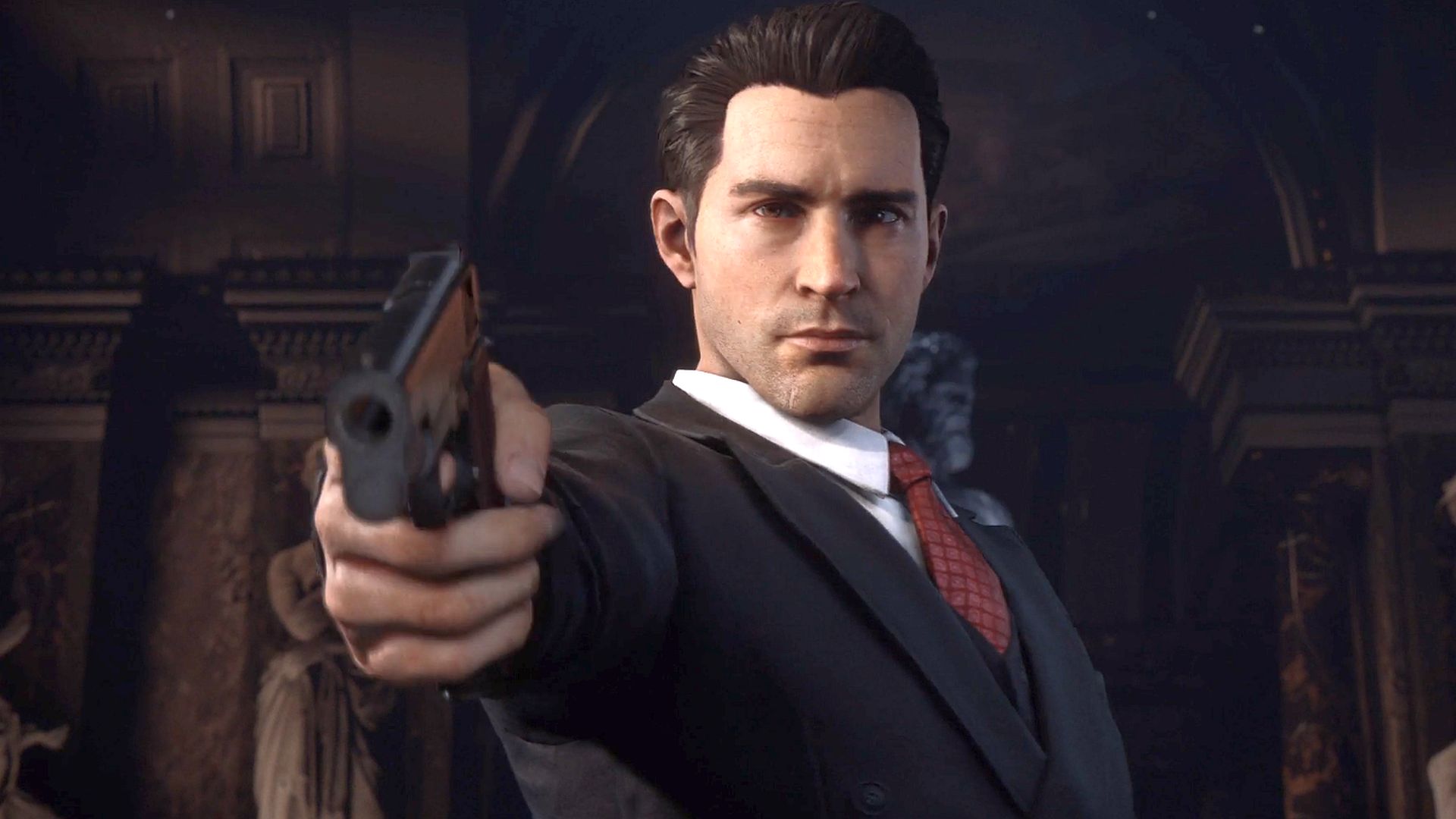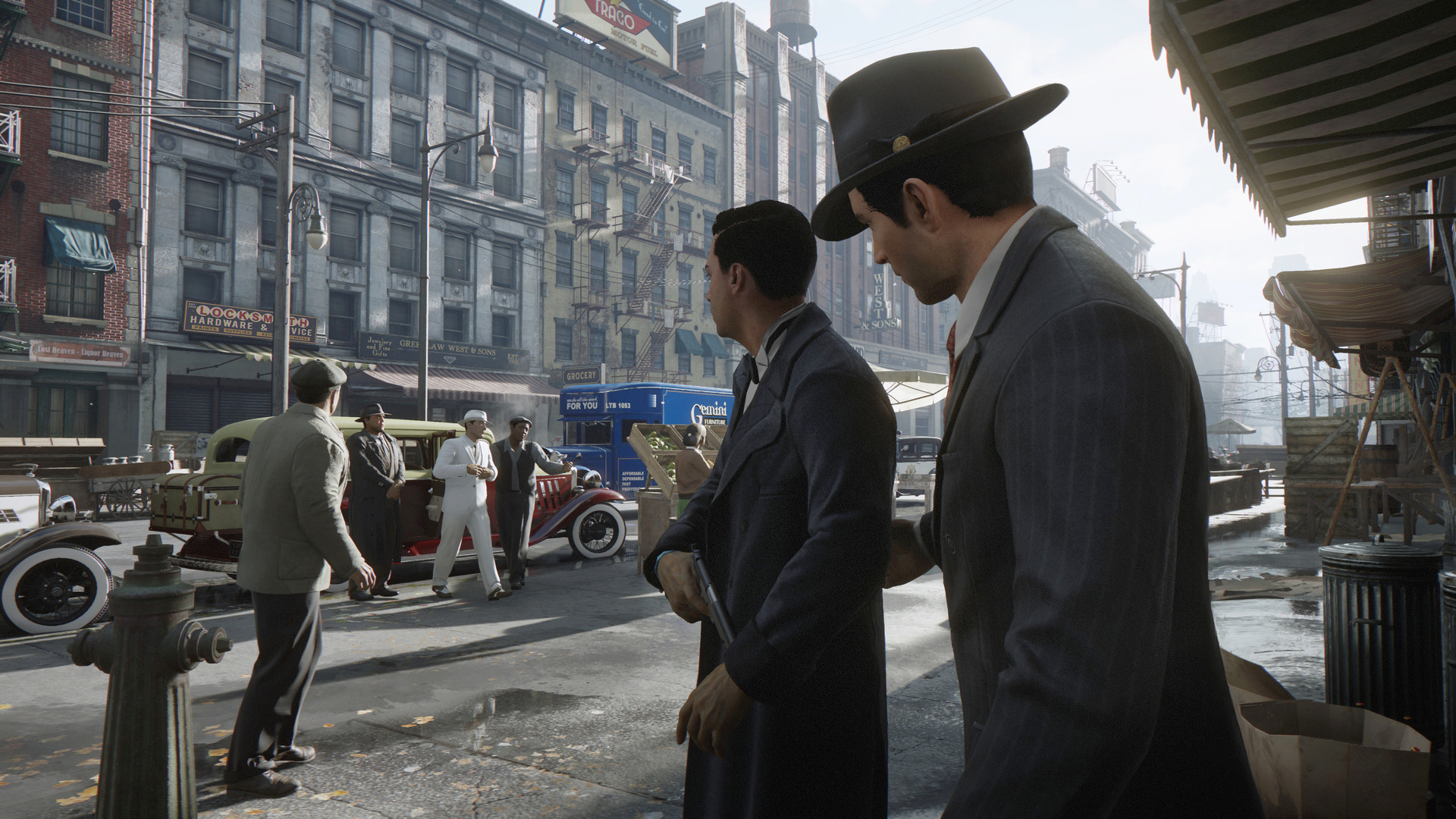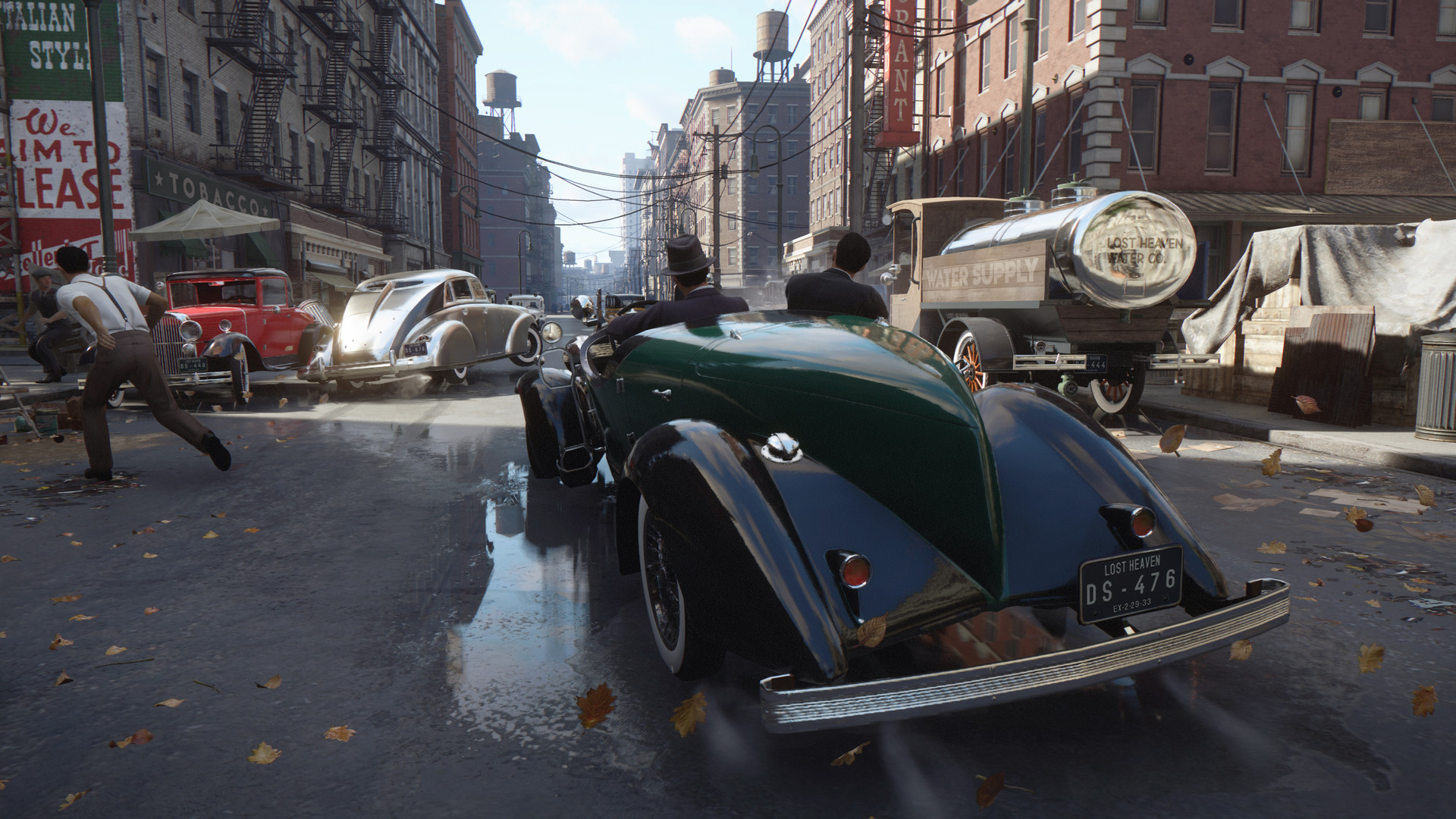Welcome to the 1930s. The economy has collapsed, authoritarian regimes are gaining power around the world, dust storms are killing crops and causing food shortages, and to make matters much, much worse, booze has been declared illegal. But for Tommy Angelo, a cab driver in the city of Lost Heaven, the Dirty Thirties are an age of opportunity. This is the story of his rise from working stiff to mafioso. But before you dive fedora-first into the criminal underworld, you have to spend some time earning an honest living. One of the first missions in Mafia sees you driving a creaky jalopy of a taxi cab, picking up snotty passengers, and getting a feel for the city as you go. The Mafia series has always been great at slowing down and giving you a chance to immerse yourself in its evocative world, and this glitzy remake of the 2002 original is no different.

Naturally, this doesn't last long. After a fateful encounter with a couple of wiseguys, Tommy ditches his cab for good and joins the Salieri crime family. The jobs are simple at first. Squeezing protection money out of local business owners, driving people around town. But thanks to a vibrantly paced story, it's not long before you get to indulge in car chases, shootouts, robberies, and all the other jolly activities of a hard-working mobster. Mafia features a big, explorable city, but it's not an open world game. This is a completely linear experience, split into tightly designed missions, so don't go in expecting a GTA-style playground. It's a cover shooter, really, interspersed with long drives and slower moments of scene-setting to let you soak up the atmosphere before the bullets inevitably start flying. It gets the balance right. You rarely feel overloaded with combat, with plenty of breaks in between to wander around, talk to people, or take a drive. The shooting is chunky and satisfying (the shotguns are great), if ultimately pretty basic. But sluggish character movement makes sprinting between, and snapping to, pieces of cover—especially in narrow corridors—feel clumsier than it should. It is, honestly, a deeply average, old-fashioned shooter. But through its use of set-pieces, world-building, and storytelling, I was often having too much fun to care. One mission in particular, which takes place at night during an apocalyptic thunderstorm, is brilliantly crafted, thrillingly tense, and hugely atmospheric. It's still just driving and shooting, but the way it's packaged is magnificent.

But it's worth remembering that the bones of Mafia: Definitive Edition are almost 20 years old. The game has been rebuilt with new technology, it has more forgiving checkpoints, and has been streamlined and tweaked in a number of ways—including wider roads in the city. But deep down it's the same game and sticks closely to its cult source material, especially in how the missions are structured and paced. Of course, it looks a whole lot better. Lost Heaven is a little emptier than some modern videogame cities, but it's occasionally incredible to look at—especially at night when it's raining. The period accurate signage, fashion, and vehicles do a good job of making you feel like you've stepped back in time, in addition to a nice selection of old timey music on the radio. The sense of place it creates is superb throughout. And if you really want to get lost in the setting, you can set it so that driving over the speed limit, running red lights, or bumping into other cars will get you in trouble with the cops. They'll give chase and hand you a ticket if they manage to catch you. This adds a nice layer of simulation to the city, but you can disable it if you'd rather just gun it to the next location without worrying about the law bothering you.

.